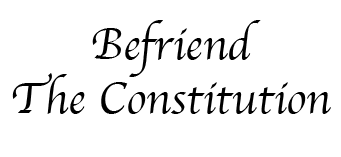I’ve been thinking a lot lately about religious freedom and its connection to the rule of law and indeed to all the rights and liberties we cherish. To be clear, by “religious freedom” I do not mean just freedom from persecution based on religious belief or practice. Such freedom is crucial, of course, but it’s hardly enough. As I have explained previously, “A robust freedom [of religion] is not merely what political philosophers have referred to as the ‘negative’ freedom to be left alone. … Rather, it is a much richer ‘positive’ freedom—the freedom to live one’s religion or belief in a legal, political, and social environment that is tolerant, respectful, and accommodating of diverse beliefs. Religious freedom, in short, “gives us all space to determine for ourselves what we think and believe—to follow the truth that God speaks to our hearts.”
I fear that some may not understand the place of religious freedom in the gospel of Jesus Christ. Our eleventh article of faith states, “We claim the privilege of worshiping Almighty God according to the dictates of our own conscience, and allow all men the same privilege, let them worship how, where, or what they may.” Freedom of religion is thus a basic principle of the restored gospel. In the Doctrine and Covenants, one of our canonical books of scripture, there is a statement that places the highest priority on preserving religious freedom. There we are told that “rulers, states, and governments have a right, and are bound to enact laws for the protection of all citizens in the free exercise of their religious belief.” In turn, when laws “[hold] sacred the freedom of conscience,” people of faith are bound to support the government. These sacred truths, affirmed in Church scripture nearly two centuries ago, have never been as timely or needed as today.


